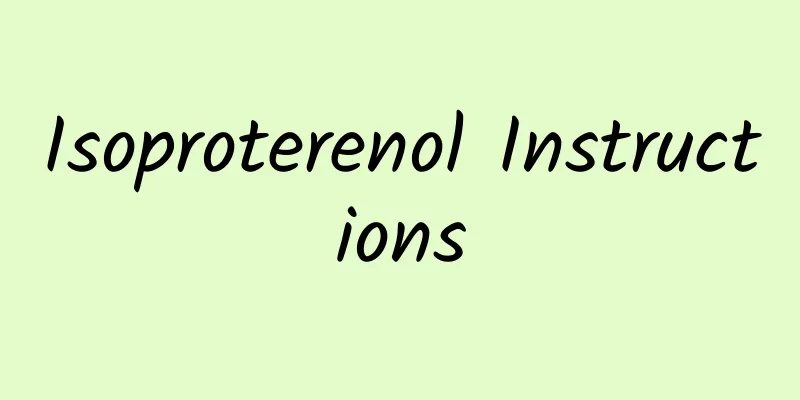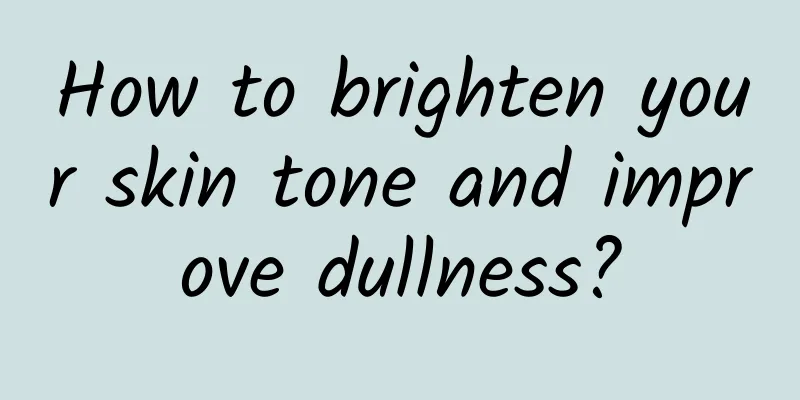Isoproterenol Instructions

|
Bronchial asthma is a relatively difficult disease to overcome and there are certain risks involved. Patients with bronchial asthma need to always have emergency medications on hand. Isoproterenol can be used to treat bronchial asthma, and it also has a certain effect on atrioventricular conduction block. Today, I will focus on talking with you about the drug isoproterenol. For details, please see the isoproterenol instructions. The main function is to treat bronchial asthma and atrioventricular conduction block. Drug Interactions 1. Combination with other adrenergic drugs can enhance efficacy, but also increase adverse reactions. 2. The effect of this product is antagonized when used with propranolol. 3. The simultaneous use of adrenaline-mimetic drugs, theophylline, and thyroid preparations will increase the toxic effects of this drug. Adverse Reactions 1. Common adverse reactions include: dryness of the mouth and throat, palpitations and uneasiness. 2. Rare adverse reactions include: dizziness, vertigo, facial flushing, nausea, increased heart rate, tremor, sweating, fatigue, etc. 3. There are arrhythmias, myocardial damage, palpitations, induced angina pectoris, headaches, tremors, dizziness, collapse, and in some cases bronchial contraction (spasm). Sublingual administration may cause oral ulcers and tooth damage. 4. When this drug is used to treat respiratory diseases, its adverse reactions include tachycardia, arrhythmias, palpitations, hot flashes and induced angina pectoris. The drug tends to require gradual dose increases, which can increase the toxic effects on the heart. This drug can cause myocardial infarction waveforms on the electrocardiogram, or if this drug is not administered intravenously, it can cause ventricular fibrillation or even myocardial necrosis. 5. It relaxes bronchial smooth muscles to reduce airway resistance, but it causes an abnormal ventilation-perfusion ratio and aggravates hypoxemia, causing the patient to feel better but his condition is worsening. In addition, it can sometimes induce strange bronchospasms. Common symptoms include headache, tremor, anxiety, dizziness and collapse. 6. Taking this medicine sublingually may also cause systemic reactions, often accompanied by oral ulcers. Contraindications 1. People who are allergic to other adrenaline drugs may also be cross-allergic to this product. 2. Use with caution in patients with hypertension, hyperthyroidism, angina pectoris, coronary artery insufficiency, diabetes, etc. Note: 1. People who are allergic to other adrenaline drugs may also be cross-allergic to this product. 2. If the patient experiences arrhythmia or chest pain after taking the medicine, he should consult a doctor. 3. Use with caution in patients with hypertension, diabetes, etc. 4. Do not chew the tablet when administering the medicine sublingually, otherwise it will not take effect quickly. |
<<: How to treat uterine coldness, qi stagnation and blood stasis
>>: Pepper water for skin diseases
Recommend
Nervousness can cause diarrhea
We know that diarrhea is related to diet. Eating ...
What to do if your tongue ulcers occur during lactation
Breastfeeding is a stage in which every woman mus...
What causes thin stools?
Thin, strip-like stools may be caused by intestin...
Cypermethrin poisoning detoxification method
Chlorpyrifos is a type of pesticide. If this pest...
The effect of boiling coriander water with honey
In life, many people like to eat coriander. Every...
Which department should I go to for gout? What are the symptoms of gout?
Which department should I go to for gout? Gout is...
Can I eat plums when I have my period?
The arrival of summer has made many friends who l...
Why do my feet itch at night?
There are many reasons for itching on the soles o...
What's going on with a protruding clavicle?
The clavicle is a bone located in the upper chest...
Life expectancy after heart stent surgery, postoperative attention is critical
Heart stent surgery is an advanced medical techno...
Pressing one acupoint can help you live longer
According to traditional Chinese medicine, Zusanl...
Is soaking your feet in hot water good for your health? Or is it chronic suicide?
Soaking feet in hot water is a health-preserving ...
How to relax the cervical spine
If you maintain a posture for a long time, the ce...
Can I take Sanjin tablets during breastfeeding?
Sanjin Tablets are a common therapeutic drug that...
Can Chinese medicine treat myopia?
The number of people with myopia is increasing ye...









